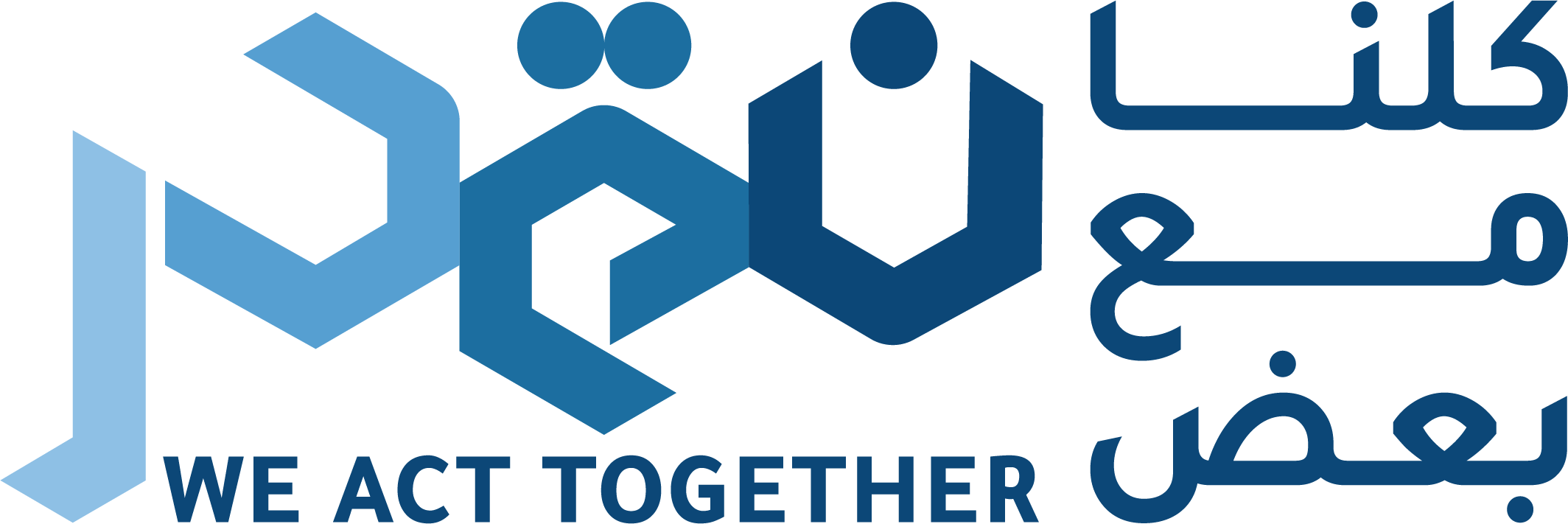Metro Center for Journalists’ Rights and Advocacy – Iraq
| GCHR
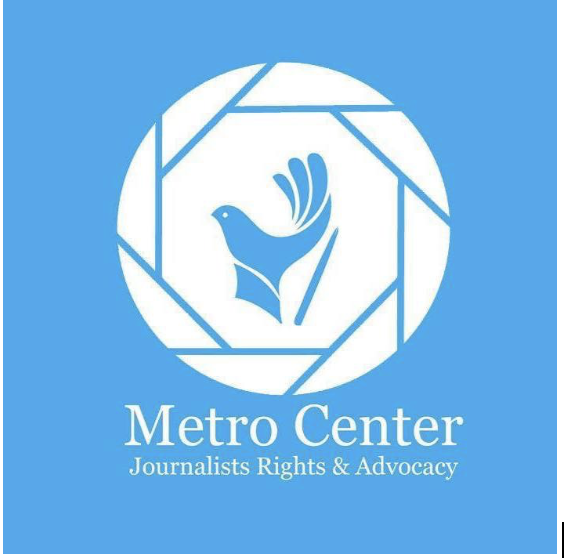
Information is the Oxygen of Democracy
Metro Center for Journalists’ Rights and Advocacy
Kurdistan Region, Iraq
We need to be informed, so that our humanity is secure
Does a journalist have the freedom to express his or her beliefs?
Can a journalist write freely about what he or she considers best suited for their country?
Is a journalist able to express their views without harassment or threat of being arrested?
Can a journalist enjoy article 19 of the Universal Declaration of Human Rights, which states that “Everyone has the right to freedom of opinion and expression; this right includes freedom to hold opinions without interference and to seek, receive and impart information and ideas through any media and regardless of frontiers.”?
Anyone reading these questions will probably think of the extent to which freedom of the media and press is restricted, and how the voices of dissenting journalists are silenced around the world, as they are prosecuted on account of what they write, say or even express through social media.
With a view to highlight the importance of freedom of press, freedom of access to information, as well as monitoring, defending and protecting journalists in Kurdistan Region; the Metro Center for Journalists’ Rights and Advocacy was incepted in August 2009 through the efforts of a group of journalists and human rights defenders, in collaboration with The Institute for War and Peace Reporting (IWPR) and International Media Support (IMS).
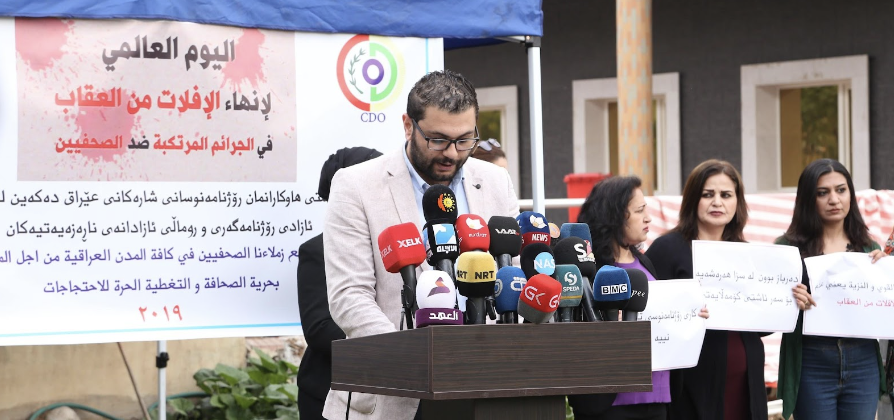
How did Metro Center make it?
It is not easy for career journalists to work in a challenging environment, while maintaining professional standards, adhering to human rights and democracy and making the voices of often marginalized or forgotten communities and groups heard.
The Metro Center made great efforts to overcome these challenges. Between 2009 and 2020, it produced 10 Annual Reports on the state of freedom of press, and continued to monitor and document violations against journalists in Iraqi Kurdistan.
The Center carried out many activities and projects to promote and protect freedom of press, including: providing legal awareness for journalists and members of security forces, with the support of the Institute for War and Peace Reporting (IWPR); launching Media journal to document success stories of journalists, in collaboration with Norwegian People’s Aid (NPA); and working on a Project on The Protection of Journalists during Armed Conflicts, in partnership with the Geneva Call. In addition, Metro Center has been monitoring freedom of press in Iraq, in cooperation with the National Union of Journalists – Iraq, and has organized workshops on Digital Security, in collaboration with the Gulf Centre for Human Rights (GCHR).
The Metro Center implemented capacity-building activities for over 500 journalists, particularly minorities within Iraq, as well as women in media.
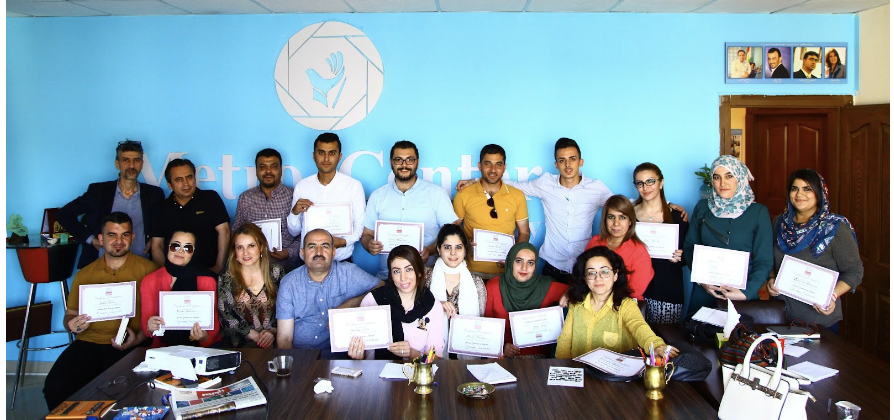
Moreover, Metro Center issued a specialized magazine to showcase the success stories of women in Iraq; implemented a project to support Syrian journalists fleeing Syria; monitored hate speech in Kurdish media. It also spearheaded advocacy campaigns aiming to urge government authorities and security agencies to respect and protect the rights of career journalists. The Center was keen on adhering to the principles of human rights and democracy, and sought to promote the ethics of independent and professional work in media.
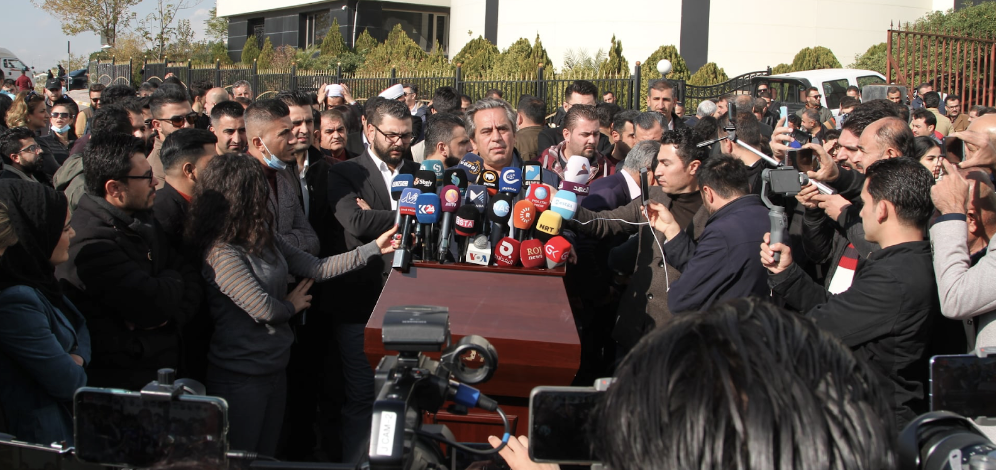
Recognition of Gender Equality
The Metro Center tackled sensitive topics in the Kurdistan region, which media organizations would typically refrain from addressing. It led many debates and dialogues to expose gender-based violations and inequality. The Center also led a campaign to ensure gender equality within each civil and media organization.
“Criticism is not a crime”
“Journalists and critics do not belong in prisons”
In its struggle to protect freedom of opinion and expression, the Metro Center was strongly opposed to the authorities’ disregard to the Press Law in the Kurdistan region, where journalists are subjected to interrogation in accordance with penal legislations, and are detained following judicial orders.
“The arrest and detention of journalists in some police stations constitute acts of reprisal against journalists, and we condemn these actions.”
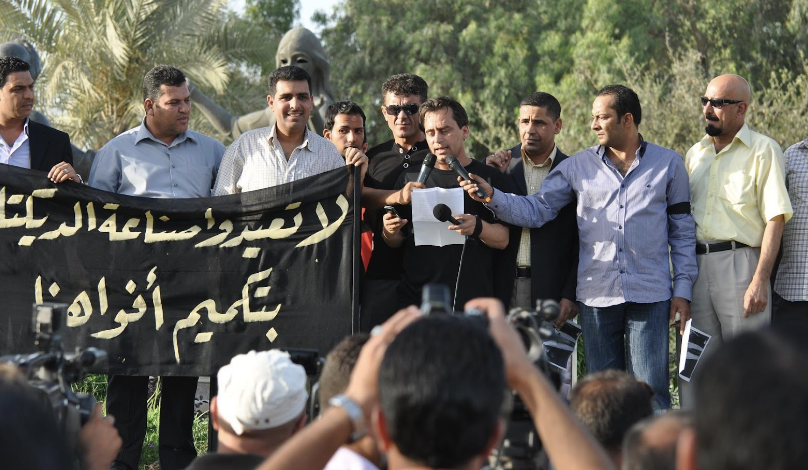
The Center operates in an environment where public liberties are increasingly curtailed, particularly freedom of information and peaceful assembly, especially after the protests that took place in Sulaymaniyah city center and a number of districts and sub-districts, which demanded putting an end to corruption in the region, improving public services, paying the employees’ salaries that have been overdue for months, and implementing comprehensive reforms. Security forces had confronted journalists and protesters with excessive force.
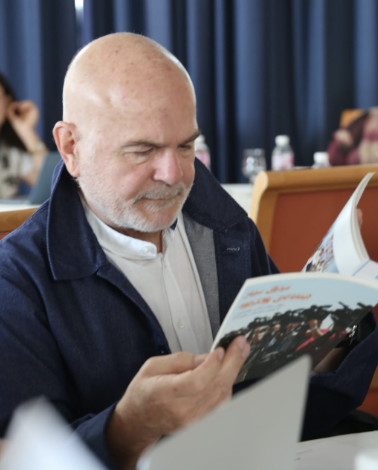
The Center monitored and produced statistics on abuses committed against journalists in the Kurdistan region in 2020. 385 cases of violations were recorded against 291 journalists and media organizations in the Kurdistan region, including 163 instances of preventing media coverage; 74 cases of arrest and detention without judicial permission; 30 cases of arrest and detention in violation of the Press Law; 48 cases of threats and insults; 8 cases of sexual harassment against female journalists; 4 instances of closure of offices; 6 cases of destruction of press equipment; 42 cases of confiscation of press equipment; 8 cases of forcibly signing statements, and 2 cases of electronic jamming.
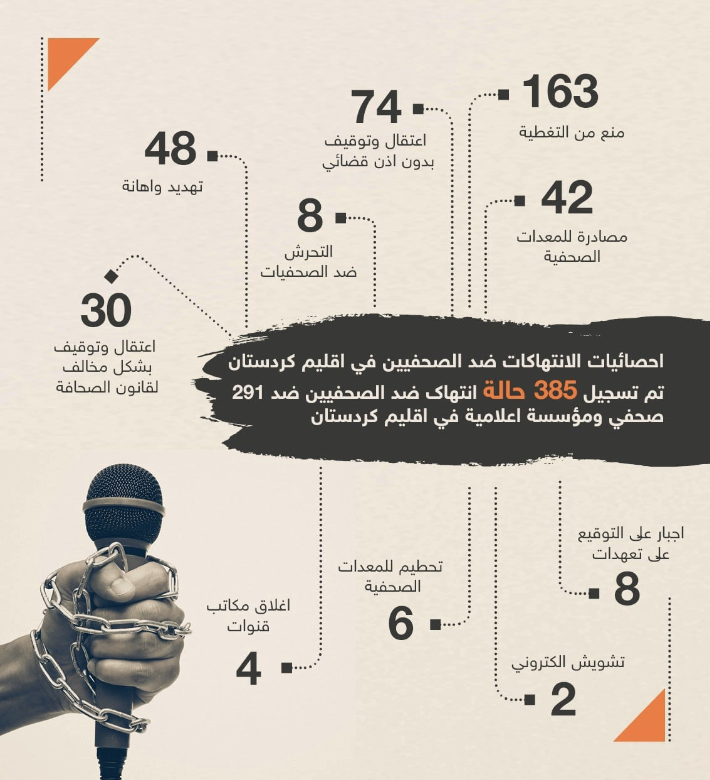
Documented violations outside the Region:
- 120 violations against 83 journalists and media organizations;
- 71 instances of banning;
- 30 arrests and detention without a warrant;
- 9 cases of confiscation of press equipment;
- 7 cases of assault and insult;
- 2 cases of forcibly signing statements;
- 1 abduction.
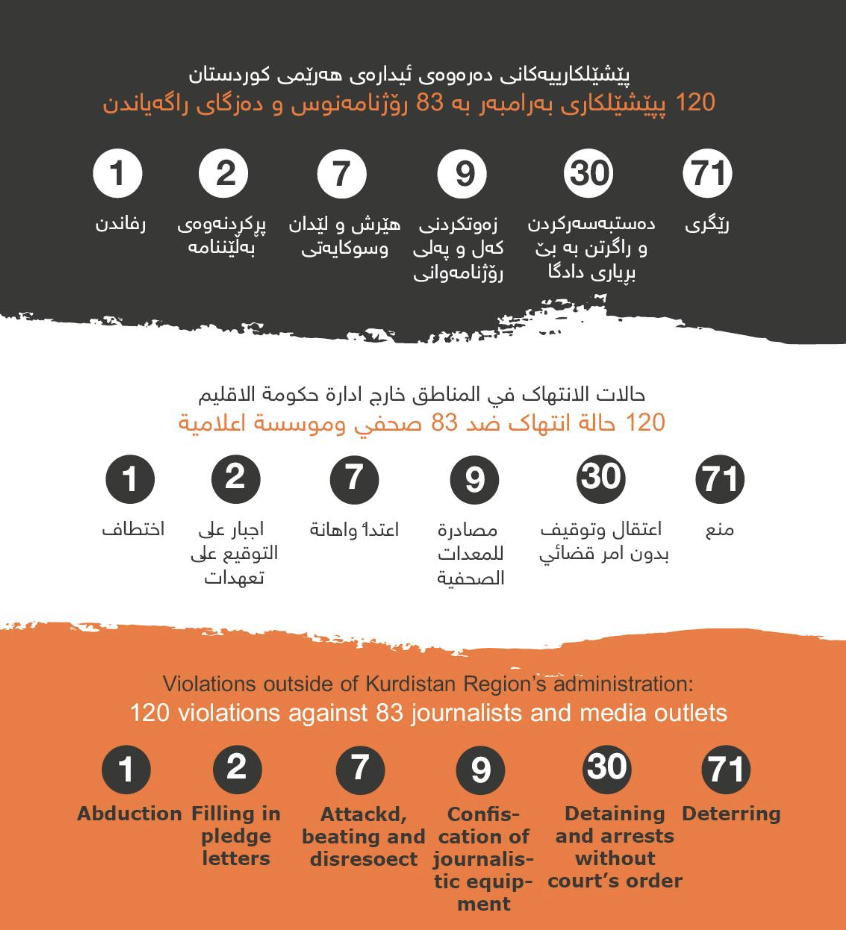
Information is the Oxygen of Democracy
Information in Iraq is often regarded “state secrets.” The Metro Center fought the battle of information, which it considered an effective tool for ensuring the citizens’ participation in decision making; given that without information, there can be no media, and that information cannot be accessed without enforcing the Information Access and Dissemination Act. Therefore, the Center advocated greater transparency in the disclosure of public information in the possession of governments and government institutions, which ought not be concealed from the public, with the exception of matters pertaining to the respect of private life and security affairs, which are regulated by the relevant legislative frameworks.
The Metro Center highlighted government figures who interacted in a democratic and transparent manner with journalists, and respected their right to obtain information. At the same time it identified the ministries which did not provide any information, including the Ministry of Oil, which was “The least transparent”.
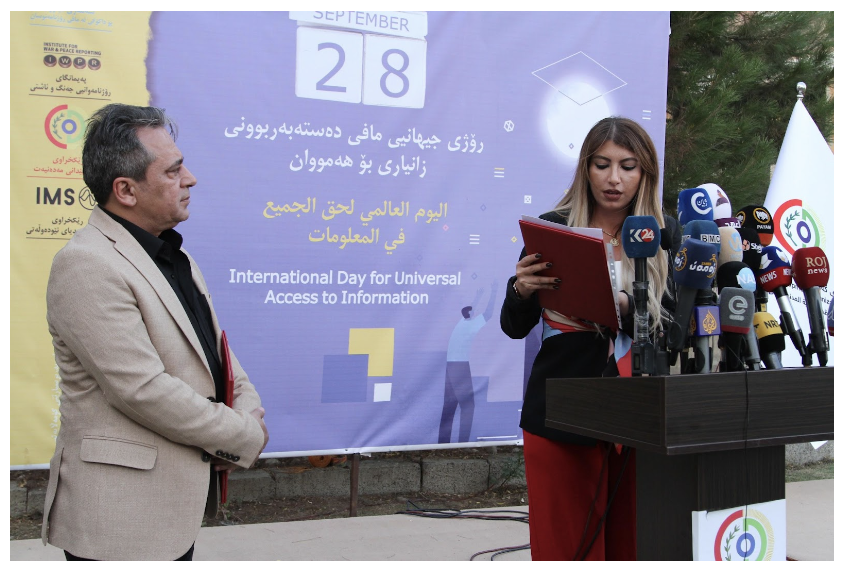
Open Doors
The Center opened its doors to provide aid to at least 30 Syrian journalists who took refuge in Iraq after having been forced to flee their home and abandon their work.
Advocacy Campaigns
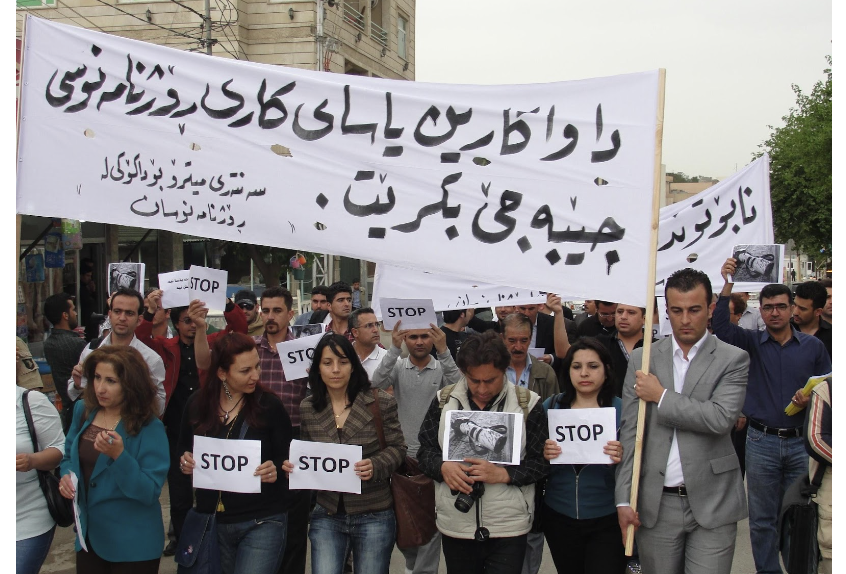
The Metro Center fought another battle with regard to the Cyber Crime Act, which set forth exorbitant fines and long prison sentences for “crimes” that include simply criticizing the government’s performance. Any citizen who criticizes a government official or complains about poor services is considered a threat to “Iraq’s independence, unity and integrity, as well as its economic, political, military and security interests”. This could lead to arrest and carry a life sentence, in addition to fines ranging between 25.00 to 50.00 million Iraqi Dinars (IQD), which is the equivalent of US$ 21,000 – $24,000.
The Center rejected the Cyber Crime Act, and viewed it as a threat to freedoms and a violation of the principles of democracy. Thus, the Center unequivocally opposed this act and worked to repeal the act which threatens to silence an entire society, and called for the bill to be withdrawn from the House of Representatives, and demanded subjecting it to public debate with the involvement of civil society organizations and legal experts; with a view to ensure that it is not in conflict with the Iraqi Constitution and the international human rights laws and conventions. In Kurdistan region, a group of parliamentarians had proposed a bill which constitutes another manifestation of the Cyber Crime Act under a different name; The Electronic Media Regulation Act, which enables the authorities to punish any person who publishes an article criticizing its policies. Due to lobbying, the Parliament formally suspended the bill, and announced that “We will reconsider the bill after consultation with media organizations and journalists.”
The Center campaigned to pressure the executive branch to withdraw the bill. In cooperation and coordination with Kurdish, Iraqi and international organizations concerned with freedom of opinion, expression and human rights; the Metro Center continues to launch advocacy campaigns with the Iraqi Parliament in order to prevent enacting this arbitrary act.
Metro led a campaign to free arrested journalists: Zaryan Mohammed, correspondent of the independent newspaper Awene; Behrouz Jaafar, member of the Journalists’ Syndicate, and Beryar Nameq, the correspondent of Sabti.
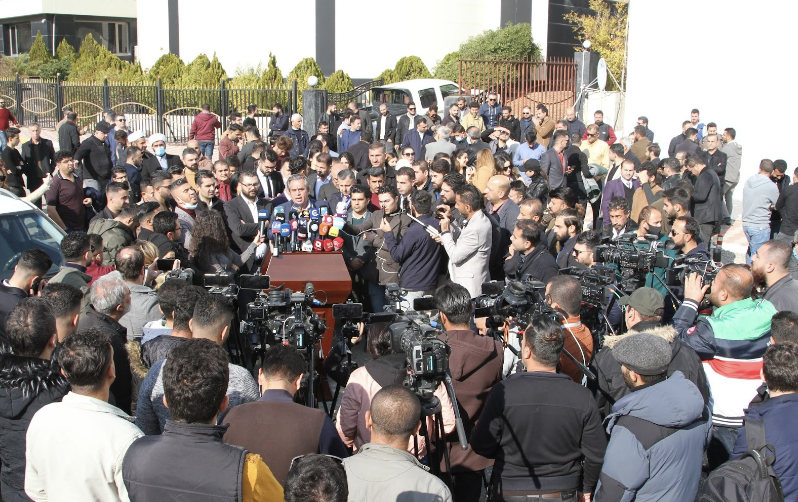
Empowerment and Development
Minorities: In an ethnically and religiously diverse setting, 100 journalists from different minorities were trained on the making of news, reports and stories concerning religious and national minorities, in order to enable them to play their role in promoting cooperation and peaceful coexistence through media in Kurdistan region. The Center organized courses to build the journalists’ capacity in reporting on human rights, so that they become actors in the protection of human rights.
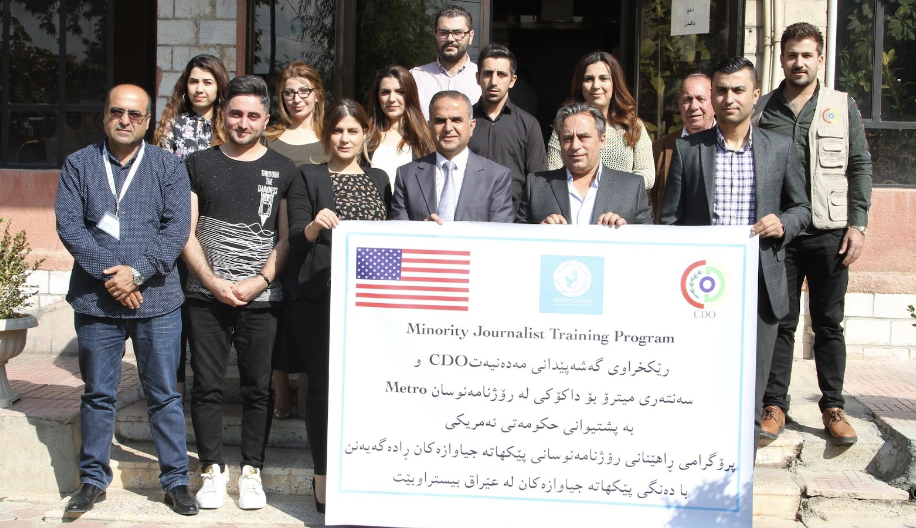
People Cannot Have Truth without the Help and the Voices of Journalists
Whenever any person is subjected to ill-treatment and is in fear, the Metro Center steps up to defend their rights. Whenever any journalist faces a situation of violence and restriction, the Center interferes and speaks up to let everyone know about and put an end to it. The Center works hand in hand with others to publicly promote human rights, freedom of opinion and expression, and ensuring greater respect for human dignity.
